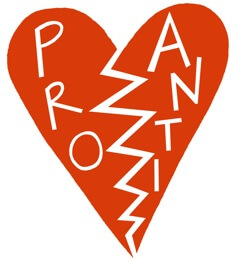There is a pattern emerging. When someone I am having a conversation with discovers that I am a parenting instructor, the response is often a series of questions. It generally goes something like this:
“. . . and what do you do?”
“I am primarily a homemaker, but I also teach parenting classes.”
“Oh really? Do you use a book or program?”
“No, I base my teaching in biblical and child development principles.”
“Uh-huh, and do you teach spanking?” Or, “How do you feel about spanking?” Or, “Well, the Bible says spanking is okay so you must support it, right?”
Here is where my evasive tactics come into play. I have had some practice, as of late. It’s not that I don’t want to answer their question . . . well, I take that back. I don’t want to answer THAT question. But for good reasons!
1. I am disheartened that one of the first things, if not THE first thing, that comes to people’s minds when they think of parenting is spanking. I realize it’s a hot button issue in our culture, but it has very little to do with the overarching mission of parenting.
2. I am uncomfortable being labelled and/or defined by my personal position on spanking. There is so much good, helpful, Christ-honoring information out there, and I feel called to help get these tools into the hands of whomever desires it. It is more than likely that no one will agree with every aspect of my teachings, and that is okay! I’m quite sure I am wrong about something. Just ask my kids! But drawing a conclusion about the merit of my teaching based solely on the spanking issue is like choosing a contractor to build your house based on what kind of hammer he uses.
3. It just doesn’t seem helpful for me to attempt to simplify my position into a one word answer. If I say yes, and they concur, they assume that we are on the same page on parenting and the conversation seems to quickly shift topics. If I say no, and they think I should support spanking, a few choice verses from Proverbs are generally quoted for my benefit.
My primary frustration is this: good parenting is not about spanking. Good parenting is also not about NOT spanking. As a matter of fact, the core tenant of parenting isn’t even discipline, though it is an important aspect of it. If I was to pick a pillar of parenting, it would be MODELING. We lovingly and intentionally take our children by the hand and, with baby steps, SHOW them what it is to become independent, Christ-like adults in this world. Believe it or not, this can be achieved with or without spanking!
I will not be writing a dissertation on the pros and cons of spanking anytime soon. I am convinced that each child is unique, each relationship between parent and child is unique, and that I need to approach each family ready to help them discover the techniques that work best for them. That being said, there are some general guidelines I support regarding spanking:
1. Spanking should only be used when then child is between the ages of 18 months and 6 years old, and only VERY sparingly between the ages of 6 and 9. There is a lot of developmental data to support this, and you can check out more at your leisure. This is James Dobson’s findings.
2. Reserve spanking for willful, pre-meditated defiance. Spanking should be a last resort, not only because of the severity, but also because in and of itself, it does not teach anything other than compliance. There is no life lesson that your child learns from receiving a spanking that they can take with them into adulthood. There is a time and place for compliance, especially when safety is involved. We don’t want a 3 year old to run into oncoming traffic, the life lesson would simply cost too much.
3. Spanking is not appropriate for children who have trouble connecting emotionally, either due to trauma, certain adoption circumstances, or for anyone who has suffered physical abuse.
4. Spanking must be done when the parent is calm, emotionally neutral, and in a predictable routine. It is FAR better to not spank at all than to do so in anger. It can cause soul wounds, and do damage the bond between parent and child.
Let’s lift our eyes a bit! Parenting is really about coaching our children toward maturity and Christ-like character, and discipline should be nothing more than the correction of a behavior in a way that adds a tool to their toolbox for life. Parents need to be watching for the discipline method that is effective and does not lead to anger and rebellion. This could be different for each child. For some kids, a “look” from a parent is enough to change course. For others, a removal of a privilege is sufficient. Imagine how difficult it is for a child to receive a spanking for a behavior that he or she would have been willing to change if Mom or Dad had just sat down and explained it to them. It can be a crushing blow.
The question I come back to time and time again with parents is, “Are your discipline methods moving your kids closer or farther from you and your God?” Answering this takes careful observation, sober consideration, and prayer.
So, when someone asks me whether I “teach spanking” or not, I am finding that the best and most truthful response is this: I teach all kinds of creative discipline methods. You can use them in lieu of spanking, in addition to spanking, or you just might find that by being willing to learn, having your ideas challenged, and making changes in YOU, you might not need those new discipline techniques nearly as often as you thought you would.



Steph, this is great! thank you for writing! I definitely agree with the point of being emotionally neutral… I know I’m not a parent, but I have been parented by my awesome parents. Many people ask my about spanking (for some reason). I usually say that if you are upset and are about to react toward your child in anger, send them (or yourself) to your bedroom to calm down. But then when you have let your anger or other emotional state to subside, follow through with the discipline so that you are a consistent person and parent. Thanks Steph!
I LOVE THIS! I’m a huge advocate for spanking and believe it can be very effective. However, I’m hesitant to say “I spank” because it’s taken out of context. Many people assume I spank in frustration, anger and have an unwillingness to take the time to discipline. Your ‘Guidelines for Spanking’ are excellent and something I try and practice. I know there’s a fine line between spanking and abuse. Thank you for sharing this. Your are a wonderful writer, friend and have a beautiful family!